Irrfan Khan
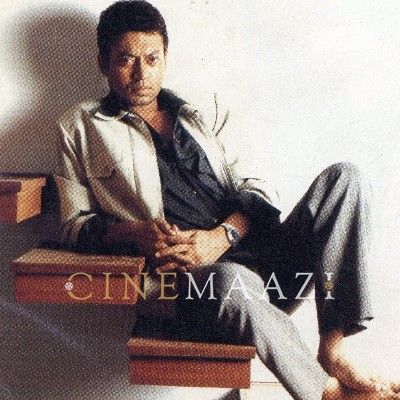
Subscribe to read full article
This section is for paid subscribers only. Our subscription is only $37/- for one full year.
You get unlimited access to all paid section and features on the website with this subscription.
Not ready for a full subscription?
You can access this article for $2 , and have it saved to your account for one year.
- Real Name: Sahabzade Irfan Ali Khan
- Born: 7 January, 1967 (Tonk, Rajasthan)
- Died: 29 April, 2020
- Primary Cinema: Hindi
- Parents: Saeeda Begum and Yaseen Khan
- Spouse: Sutapa Sikdar
- Children: Babil, Ayaan
A rare actor who straddled multiple worlds and left his mark in both international and Indian cinema in both intense and light-hearted roles, Irrfan Khan wore his talent lightly. One of Indian cinema's finest actors and among its most successful exports to Hollywood, he acted in approximately 80 films in the course of his career, breaking stereotypes, and carving his name as one of the most natural and versatile performers, an actor par excellence. First spotted by Mira Nair who cast him in Salaam Bombay (1988), the two would collaborate again in the critically acclaimed The Namesake (2006) and for the director’s segment in New York, I Love You (2008). From self-admittedly ‘being stuck’ in TV soaps for 10 years in the 1980s, to finding his big break with Aasif Kapadia’s The Warrior (2001), he made steady progress, graduating from character roles to headlining films, and eventually becoming perhaps India’s most celebrated face in the West. Hailed for his lifelike, dependable performances, he left his mark in films such as Academy Award nominated Salaam Bombay! (1988), Maqbool (2004), Paan Singh Tomar (2011), The Lunchbox (2013), Haider (2014), Gunday (2014), Piku (2015), Talvar (2015) and Hindi Medium (2017). Equally, he delivered impactful performances in the West in films such as Life of Pi (2012), Slumdog Millionaire (2008), A Mighty Heart (2007) and Jurassic World (2015). His performance in The Namesake (2006) was described by noted film critic Roger Ebert as being ‘subtle, engrossing’, while filmmaker Danny Boyle dubbed his Slumdog Millionaire performance as “beautiful to watch”. Gifted with a chameleon-like ability to morph into anyone on screen, he could as easily be the sardonic taxi company owner in Piku (2015) as he could the rebel athlete in Paan Singh Tomar, the wildly inappropriate Monty in Life… In A Metro (2007), or the elderly romantic of The Lunchbox. Introspective and philosophical in nature, he was known to speak candidly and even controversially about matters personal and professional. Disclosing that he was suffering from a neuroendocrine tumour in the spring of 2018, he soon left for London for treatment. During a two year period of struggle and cancer treatment, he was able to complete the Hindi-language film Angrezi Medium (2020). Ahead of its release he had shared an empowering message for his fans, stating that the only choice he had was to remain positive. He passed away on 29 April, 2020. In 2011, he had been awarded the Padma Shri - India's fourth-highest civilian honour for his contribution to the arts.
Born Sahabzada Irfan Ali Khan on 7 January, 1967 in the Rajasthan village of Tonk, his mother Saeeda Begum hailed from the royal Tonk Hakim family, while his father Yaseen Khan was a game hunter who also owned a tyre business. Later, he would drop his first given name Sahabzada, which translates to scion of a nobleman, and add an extra ‘r’ to Irfan because he apparently preferred the way it sounded. Keen on cricket, from his mid-teens his passion for acting had become intense. While his parents wished to see him pursue teaching or medicine, he yearned to do something where he could ‘connect’. Applying for a scholarship to the National School of Drama in Delhi in 1984, he reportedly lied about his prior experience in theatre to get in. Incidentally, it was at NSD that he also met screenwriter Sutapa Sikdar, whom he would marry in 1995.
Describing himself as ‘so thin, so shy’, Sikdar would later comment on his unwavering focus. “I remember when he would come home, he would head straight for the bedroom, sit on the floor, and read books. The rest of us would be hanging around gossiping,” she recalled.
Keen to work in films, he had to take what work he could get; namely, parts in TV soap operas. While work was easy to come by considering the mushrooming of cable channels, it was far from artistically fulfilling. Ten years of playing uninspiring parts on the Zee and Star Plus networks, and he seriously considered quitting acting. His big screen debut came with Mira Nair's Oscar nominated Salaam Bombay! However, his part—that of a letter writer in a film based on the lives, trials and tribulations of the street kids in Mumbai—was severely curtailed at the editing stage. His breakthrough was to come several years later in the British-Indian film The Warrior, which was shot in the lofty Himalayas and the deserts of Rajasthan. In this debut feature film of British director Asif Kapadia, Irrfan essayed the title role of the warlord who attempts to give up the sword. A critical success, the film won the Alexander Korda Award for Best British Film at the Baftas. It was also shortlisted for the UK's official entry for the Academy Awards; however, it was dropped on the technicality that Hindi was not a language indigenous to Britain.
For Irrfan, there was no looking back as an actor. Over the next two decades, he would make as many as five or six films a year, making waves consistently with his measured and charismatic performances in a range of roles from a rebel athlete to a don’s aide. His understanding of a script, and the humility to recognise that it was bigger than him, rendered his every performance a masterclass. Maqbool (2003), Vishal Bhardwaj’s adaptation of Shakespeare’s crime drama Macbeth, saw him star as Maqbool, trusted lieutenant of mafia don Abbaji or Jahangir Khan (Pankaj Kapur) and secret lover of Abbaji’s mistress Nimmi (Tabu). He brought alive the ambition, ruthlessness, and tenderness of the character in a searing manner, delivering one of the most riveting performances of the Hindi film screen.
His performance as the star steeplechaser and Army subedaar-turned-rebel, who takes to the sport to feed his hungry stomach, added heft to the true life story of the film, Paan Singh Tomar and also earned him Best Actor at the National Film Awards. In contrast, he pulled off one of his first comic roles in Life In A… Metro (2007) with delicate balance, essaying a gauche and guileless man who still manages to make the audience root for him! His Saajan Fernandes in The Lunchbox (2013) touched a chord with his underplayed rendition of a widower close to retirement from his accounts job, whose true nature emerges via his letters to Ila (Nimrat Kaur) and his unlikely friendship with Shaikh (Nawaazuddin Siddiqui). If he brought a quiet dignity to the heartbreaks and struggles of a first-generation Bengali immigrant in New York - Ashoke Ganguli in Mira Nair’s The Namesake, he grabbed attention as the chilling and powerful leader of a rival faction in university in the Tigmanshu Dhulia-directed Haasil (2003), which was set against the backdrop of violent student politics in Allahabad University. His cheery, socially inept unsuccessful poet Yogi or Yogendra Kumar Devendra Nath Prajapati, resonated instantly with audiences in the rom-com Qarib Qarib Singlle (2017), even as he held his own as the sardonic taxi company owner Rana in Piku (2015), which also starred Amitabh Bachchan and Deepika Padukone.
He is one of the few actors to have carved a successful career in British and US cinema, displaying his enormous range as a performer. If he essayed the incredulous police inspector putting the screws on the plucky young hero (Dev Patel) in Danny Boyle’s Slumdog Millionaire (2008), the Ang Lee directorial Life of Pi (2012) based on Yann Martel’s Booker-winning fable saw him in the more benevolent avatar of a narrator spinning the tall tale of a tiger and a child lost at sea. While he featured in Wes Anderson’s The Darjeeling Limited (2007), The Amazing Spider-Man (2012) and Jurassic World (2015), in which he played the billionaire owner of a dinosaur park, A Mighty Heart (2007) proved to be a rewarding experience for him. Speaking of this Michael Winterbottom directorial starring Angelina Jolie as the widow of the murdered journalist Daniel Pearl, he would express his satisfaction at doing “these kinds of stories that can possibly change things somewhere”. “I’m giving back something to the world…” he would say, adding, “I cannot keep consuming and doing things just for entertainment.”
Well-aware of the importance of being informed—not just about the craft but also what goes on around you—he was a voracious reader, and constantly educated himself. “I try to do films which leave a longer impact, which speak to you and which keep coming back to you after you've seen them. I prefer movies which have a longer relationship,” he explained, regarding his choice of films. Averse to using the term ‘Bollywood’ for the Hindi film industry, he would explain that the industry has its own technique that had nothing to do with aping Hollywood, and that it originates in Parsi theatre. Dwelling on the differences between the two industries, he pointed out, “Hollywood is too planned. India has no planning at all. It's more spontaneous and informal. India could be more formal and Hollywood more spontaneous.”
Declining roles that he felt had overly strong religious or cultural connotations such as Deepa Mehta's Midnight's Children (2012) and Mira Nair's The Reluctant Fundamentalist (2012), he equally spoke out against blindly following religious rituals. Detained twice at Los Angeles airport after the attacks of 9/11, as his name was similar to that of a terrorist suspect, he later preferred to be credited as simply Irrfan in his films.
In 2018, he was diagnosed with neuroendocrine tumour, which affects the cells that release hormones into the bloodstream. He had shared the news quoting Margaret Mitchell, author of Gone With The Wind, writing, “Life is under no obligation to give us what we expect.” Seeking treatment for his condition in London, he posted a poem to his followers on Instagram, saying, “God speaks to each of us as he makes us, then walks with us silently out of the night.”
Irrfan Khan passed away on 29 April 2020. He was 53.
References
Sources: https://www.bbc.com/news/world-asia-india-52471659
https://www.bbc.com/news/world-asia-india-43476602
https://www.theguardian.com/film/2020/apr/30/irrfan-khan-obituary
https://theprint.in/features/irrfans-8-finest-performances-and-what-made-them-so-special/411329/
https://www.hindustantimes.com/bollywood/irrfan-khan-dies-at-54/story-Hd8s2xZ6uNeqDjgV0sl7zI.html
-
Filmography (8)
SortRole
-
Namesake 2006
-

The Killer 2006
-
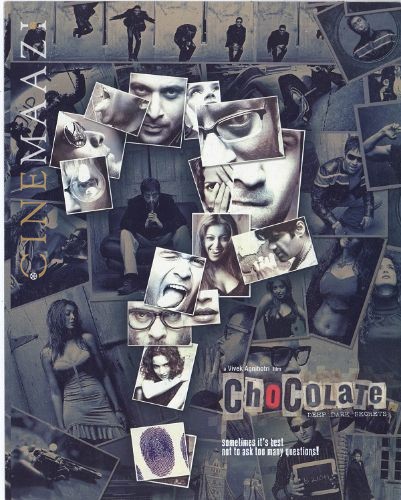
Chocolate 2005
-
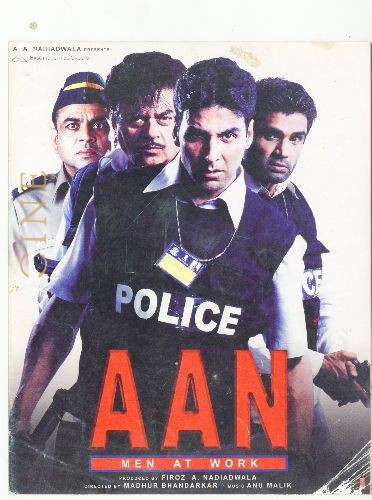
Aan : Man At Work 2004
-
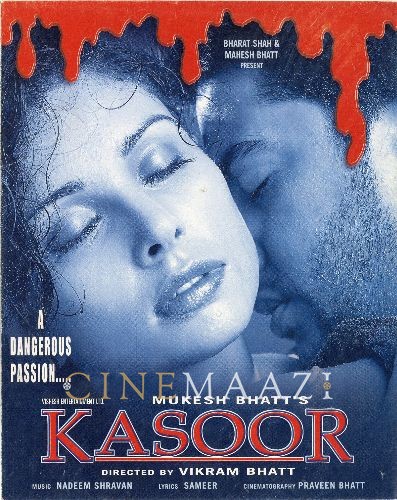
Kasoor 2001
-

Drishti 1990
-

Kamla Ki Maut 1989
-
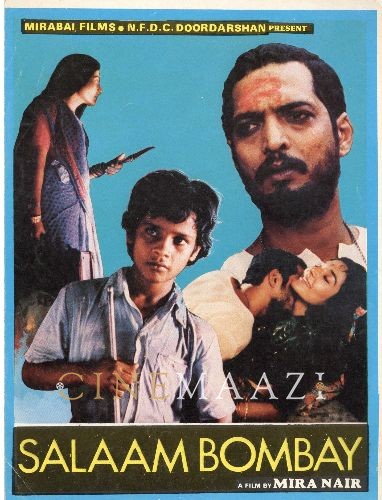
Salaam Bombay 1988
-







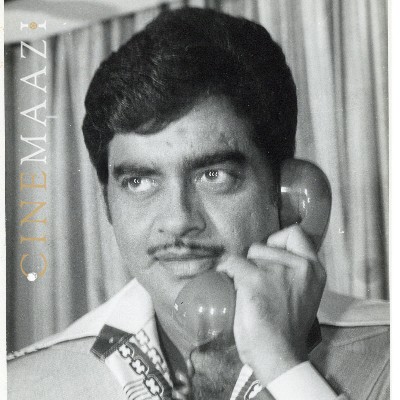

.jpg)



